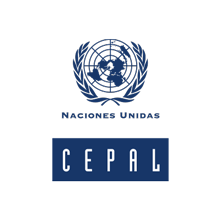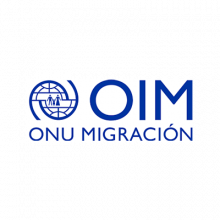
You are here
SIDE EVENTS
THE REGULARIZATION OF MIGRANTS: A TOOL FOR INCREASED INTEGRATION AND ACCESS TO RIGHTS
April 27, 2021
8:00 a.m. Bogota time (GMT -5)
9:00 a.m. Santiago de Chile time (GMT -4)
15:00 p.m. Geneva time (CEST)
One of the objectives of the Global Compact for Safe, Orderly and Regular Migration (GCM) is to enhance availability and flexibility of pathways for regular migration. The Compact recognizes that regularization of migration is one of the main tools for integrating migrants, promoting their human rights and generating peaceful, just and inclusive societies. Therefore, each State, with the support of the international community, are appealed to develop policies of social integration and protection of human rights of migrants, including through effective, flexible and inclusive migration regularization policies.
Regularizing migrants represents a first step in initiating a virtuous cycle for migrants in their destination countries. For its effectivess, it should include host communities to facilitate integration and fight against discrimination as well as xenophobia.
Migrants in an irregular status are, among other consequences, exposed to serious violations of their fundamental rights and often exploited. Therefore, it is in the interest of States to adopt appropriate regulatory measures to prevent and eliminate the trafficking and smuggling of migrants, while ensuring their human rights.
Moreover, lacking regular status creates extreme vulnerability and affects migrants' ability to access formal economy and labour market, basic services, protection and assistance from the host State. In many cases, restrictive regularization processes have proven to be effective in preventing irregular migration, but only make it more difficult for migrants to access a dignified life.
Faced with a socioeconomic situation that has worsened in all Latin American and Caribbean countries due to the severe impact of the Covid-19 pandemic, it is even more urgent to discuss the links between regularization, access to services, host communities and development.
To address this issue, experts from international organizations and States will participate in the side event and will present best practices from countries in the Latin American and Caribbean region. A particular focus will be given to the comprehensive and solidarity-based regulatory measures adopted in response to recent major migratory movements.
The meeting will also highlight the important role of the international community in support to the host countries and host communities in harnessing the link between development, migration and human rights; a triad promoted by the Global Compact for Safe, Orderly and Regular Migration.,.
Objetive: This event aims to highlight the importance of regularization measures adopted in the region with a view to guaranteeing the human rights of migrants, promoting their social integration, combating xenophobia and discrimination, and complying with the objectives of the Global Compact for Safe, Orderly and Regular Migration.
GENDER-RESPONSIVE APPROACHES TO MIGRATION: THE GLOBAL COMPACT FOR MIGRATION AS A GUIDING FRAMEWORK
Date: Wednesday April 28th 2021
Time: 9:00-10.30am Santiago, Chile
Concept note:
Gender-responsiveness is one of the cross-cutting and interdependent guiding principles of the Global
Compact for Safe, Orderly and Regular Migration (GCM) (Article 15)1
Gender affects all migrants at all stages of migration, however, gender can have uneven, and often deleterious impacts for some - particularly for migrant women and girls and marginalized groups such as LGBTI persons. Deeply entrenched gender inequalities which manifest in gender-specific forms of discrimination, for instance, in terms of access to education, decent work and social protection, and sexual and gender-based violence (SGBV), are major drivers of migration. Women and girls on the move are more likely to experience violence, abuse and exploitation while migrating. Gender produces differential opportunities, impacts and outcomes for migrants, and these uneven outcomes have been especially evident in the context of the COVID-19 pandemic. Around the globe, and in Latin America and the Caribbean, the pandemic has exacerbated gender inequalities, with migrant women in the region (roughly 50.4% of 11.7 million migrants) being disproportionately impacted by increased unemployment, poverty, and the overload of unpaid care, as well as increases in SGBV and risks of exploitation.
Gender-responsive migration policies provide an opportunity to support migrant women and girls, and empower them to thrive in their host communities. As governments move towards realizing the objectives of the GCM, it is vital that stakeholders and governments come together to build capacities and share guidance on how to design, implement, monitor and evaluate gender-responsive migration policies, programmes and services.
This side event, co-sponsored by the governments of El Salvador and Canada, brings together governments and civil society from the region and beyond, with the aim of sharing good practices, resources and guidance on mainstreaming a gender perspective in migration governance, with particular emphasis on the implementation of the GCM. Particular areas of focus addressed in this side event include: responding to the gendered impacts COVID-19 in the region; integrating a gender perspective into migration and settlement policies; strengthening capacity and fostering partnerships for enhancing gender-responsive migration governance.
1 Gender-responsive: The Global Compact ensures that the human rights of women, men, girls and boys are respected at all stages of migration, their specific needs are properly understood and addressed and they are empowered as agents of change.
It mainstreams a gender perspective, promotes gender equality and the empowerment of all women and girls, recognizing their independence, agency and leadership in order to move away from addressing migrant women primarily through a lens of victimhood.
Practical information
| SETUP REQUIREMENTS | HOW TO JOIN | Preparing for a Meeting | PARTICIPANT INTERFACE |
Meeting Links:
Session Name: Gender sensitive approach to migration: the GCM as a guiding framework
| HOW TO JOIN | as participant Meeting ID: 240212293259 |
HOW TO JOIN | Viewer Meeting ID: 770214562933 |



